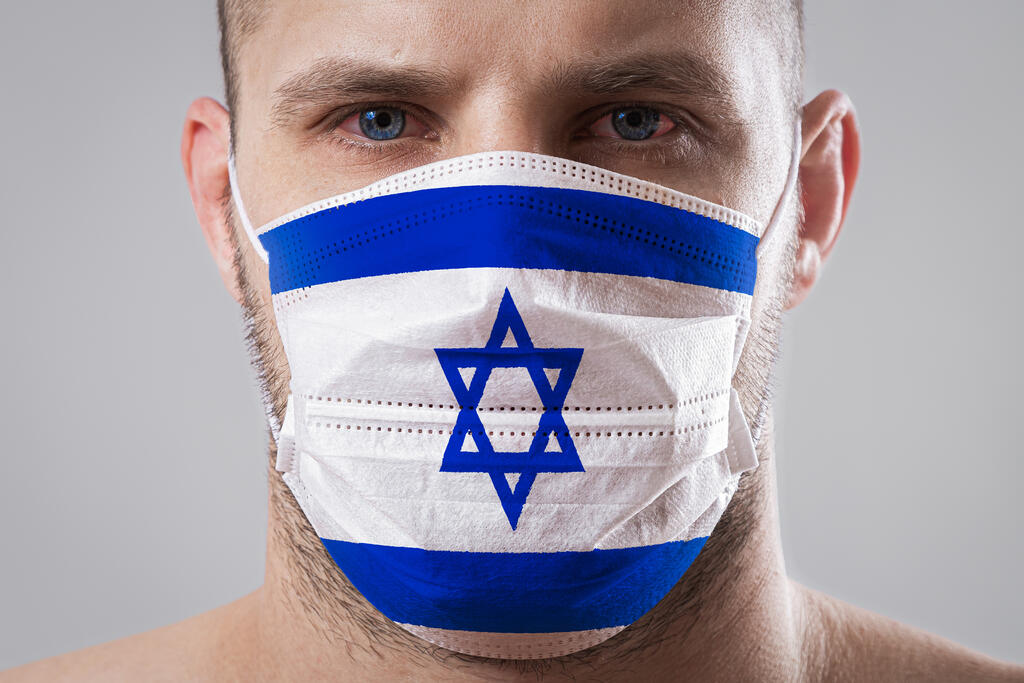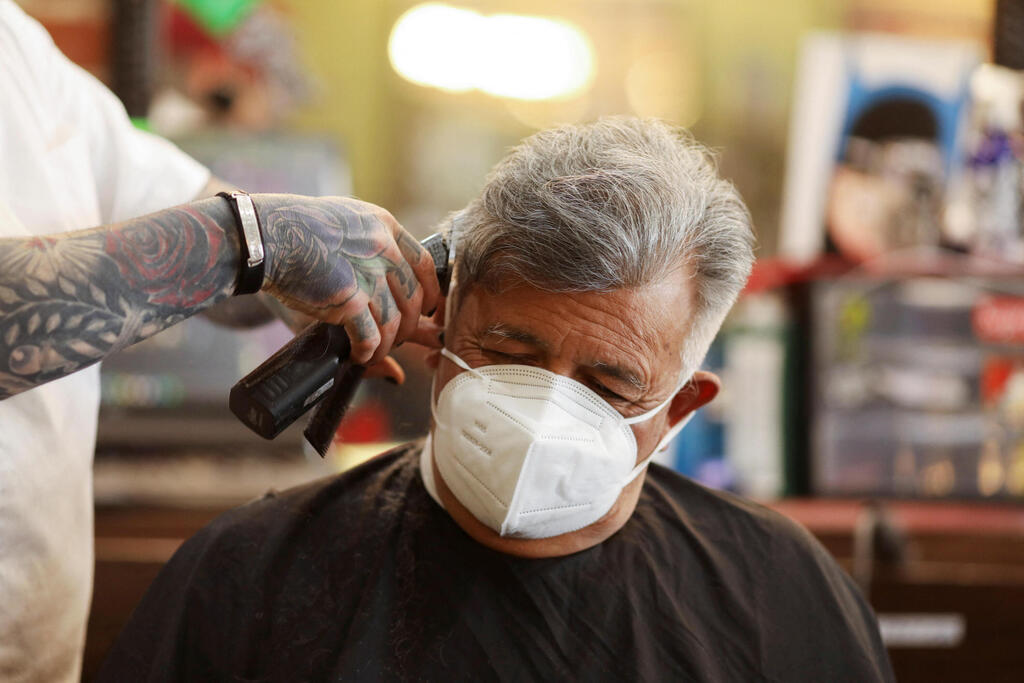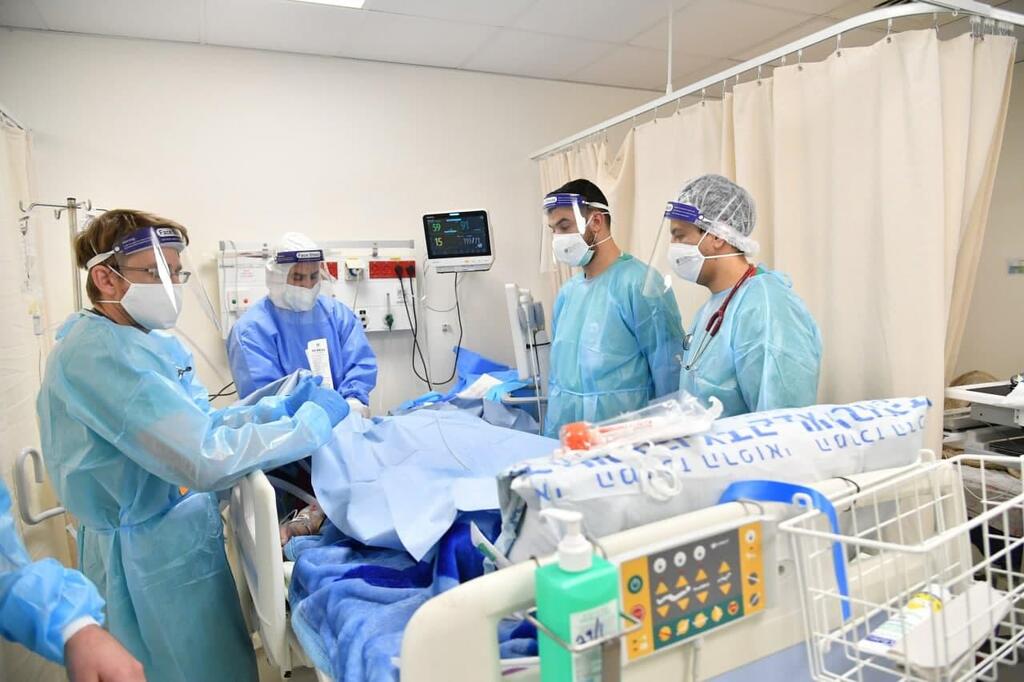Getting your Trinity Audio player ready...
Although Israel officially lifted the mask mandate on Saturday evening in most confined spaces, there are still plenty reasons to not neglect the masks completely, at least according to health experts.
Here are five reasons to keep wearing masks in public places:
1. COVID-19 infection rises in other countries
Around the world, there is no consensus on the mask mandate. In some countries, such as the United States, there is no obligation to wear masks in public places, while in Europe and the far East, masks are still mandatory in most confined spaces.
In Israel, there was a slight drop in infection rate before the Passover, while the reproduction number (which is no longer accurate, due to the dramatic reduction in the number of COVID tests) stood at 0.7. However, toward the end of holiday, the R number - which indicates how many people on average a single COVID patient infects - rose to 0.75.
While this number remains below 1 and indicates the spread of the coronavirus in a community is contained, a new, more aggressive COVID variant may change the situation.
2. You may infect those who are part of at-risk groups
At-risk populations include infants, the elderly, pregnant women, and those who have a weakened immune system. Some of them cannot be identified that easily, especially young people with underlying illnesses who appear healthy. You could make them extreme ill and even pose a life threat to them if you're maskless around them - while infected.
At this point, with COVID still around and Health Ministry's infection data being only partial, it is a good idea to continue wearing masks in confined places with large gatherings.
3. The risks of COVID continue even after recovery
More evidence suggests that even if you have a mild illness, and you're not in a risk group, you may suffer from the long-term coronavirus effects. Up to this day, over 200 different symptoms have been reported, some of which last months. A recent study found that one-third of those who have recovered from COVID reported that they had "completely recuperated" only a year after.
The long-COVID symptoms vary in their seriousness and the most common, which may appear both weeks and months after you're fully recovered, include weakness, fatigue, muscle pain, joint inflammation, memory problems, and even symptoms of blood clots that may appear six months after apparent recovery.
Therefore, even if the current variants tend to cause a relatively mild illness compared to previous strains, the risk of long-term symptoms may severely damage the quality of your life, and sometimes even endanger it.
4. Even if you are the only one with a mask on, you still decrease chances of being infected
A study published in the PNAS periodical in December 2021, showed that a person wearing a surgical mask would only be protected by 10% after being near a person infected with COVID for a half-hour, even if he keeps two meters away.
On the other hand, a person wearing an N95 mask will be protected by about 80%, even after spending an hour with a COVID patient.
Another study published by the U.S. CDC last February indicates that people who wear the N95 mask in confined spaces, were at a reduced risk of being infected by 93% compared to people who reported not wearing a mask.
Those who reported wearing a surgical mask were 66% less likely to contract an infection, and those who wore a cloth mask were at a reduced risk of 56%. However, researchers have assumed that those wearing a mask tend to be more careful, maintain higher hygiene and avoid overly crowded places.
5. The masks proved to be efficient against other illnesses
Wearing masks for the past two years protected us not only against COVID-19, but also significantly reduced the chance of catching other infectious diseases. For example, a year ago, no flu cases were reported at all, a phenomenon attributed to a relatively high rate of vaccination and the mask mandates.
According to estimations, COVID-19 will last at least until 2024. The containment of the pandemic often occurs after herd immunity is achieved, and to do so, 90% of the world's population must be vaccinated.
But until vaccines catered to the Omicron strain arrive on the market, along with the approval of vaccines for babies, we are looking at quite a few more months of life alongside the pandemic.






